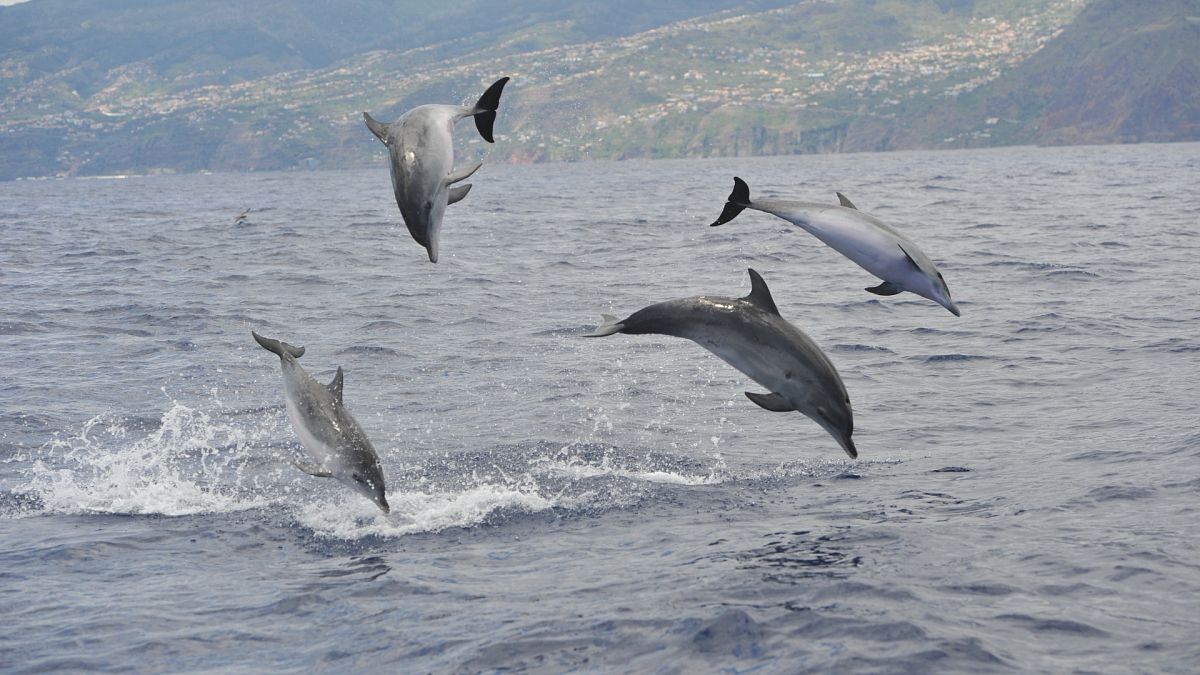Sarah Faith is a senior values writer at activist travel company, Responsible Travel.
Few people on earth inspire us to stand up for nature like David Attenborough. The message from his new feature film, Ocean, is clear: the most important place for life on Earth is the sea.
Many of us feel the pull to travel the world and experience these awe-inspiring marine ecosystems for ourselves. But knowing whether the choices you make are harming or helping the wildlife you are there to spot can be hard.
Here, experts explain how to ensure your next holiday helps protect our precious marine habitats.
Should I swim with wild dolphins?
You can, says Sophie Lewis, CEO of the World Cetacean Alliance (WCA), but don’t underestimate the potential impacts and challenges of doing so.
“We have to remember that getting in the water with wild cetaceans (the collective term for whales and dolphins) can disturb really biologically important activities like feeding, nursing or resting,” she explains.
If you choose to swim, you’ll need to check it’s legal in the location you are doing it in and be confident using a snorkel in deep, open water. Choose an operator that openly publishes the guidelines they follow to ensure the animals have control over the interaction and to keep you safe. These include making sure swimmers stay calm and still, not getting in front of the animals’ direction of travel and being willing to back out of an experience if it’s not suitable.
Ultimately, she says, consider whether it’s worth getting into the water in the first place. “It shouldn’t be underestimated what a special experience it is seeing these animals from a boat.”
How do I choose a responsible whale watching tour?
Researching before you book is key, says Lewis. Look for trips that stay at least 100 metres away from whales and 50 metres away from dolphins. There should also be limits on time spent with the animals and on the number of boats present.
Lewis adds that “being a responsible operator isn’t just about best practice on the water, it’s about positively contributing beyond that to the local environment and to local communities.”
Look for locally-owned tour operators which support marine conservation projectsand those certified by the WCA or another marine wildlife organisation.
A great place to start is the WCA’s designated Whale Heritage Areas – communities committed to raising the standards of whale tourism, protecting ocean habitats, and celebrating their shared marine cultural heritage.
In places like Madeira, the Azores and Tenerife, you can expect to find tour operators passionate about conservation governed by strict animal welfare regulations, as well as events or museums dedicated to the history of whales in the region.
An eight-day holiday in the Azores withResponsible Travel, including up to five whale watching trips run by a marine wildlife specialist, costs from £835pp excluding flights.
How can I have a greener beach holiday?
“Responsible tourism is about finding a balance where the benefits can outweigh any negative impacts,” Lewis asserts.
According to UK environmental charity Surfers Against Sewage, over 11 million tonnes of plastic enter the oceans every year. Leave a smaller plastic footprint trip by holidaying in one of their designated ‘Plastic-free Communities’ – places with a shared commitment to reduce single-use plastics.
Take home your litter (and any other litter you find), but leave natural souvenirs on the beach. “As tempting as it is to pick up shells or coral, they’re all vital parts of the ecosystem,” advises Lewis. “It might seem like a small thing to you, but when you have hundreds of thousands of tourists every year taking one small thing, it adds up.”
Anthony Saner is Director at NGOReef Conservation International, a charity working to protect the Belize Barrier Reef. He strongly encourages the use of reef-safe suncreams. “Chemicals in sunscreen (most notably oxybenzone and octinoxate) kill developing coral, increase the bleaching of coral and damage the developing polyps.” And with 14,000 tonnesof suncream sliding off bodies into the sea each year, every squirt counts.
Saner cautions that beach resorts can be devastating for beach ecosystems. So, before you book, find out how your hotel supports marine conservation and local communities, and what it does with its waste.
Should I visit a marine park?
In the wild, orcas can swim up to 225 kilometres a day, in social groups with complex languages and cultures. Captivity causes distress.
“Whales and dolphins can suffer from chronic stress from these restrictive spaces and artificial environments…and sadly this can lead to illness, aggressive or self-harming behaviour, and an early death compared to a natural lifespan”, says Lewis.
She recommends that anyone who cares about whales or dolphins should avoid visiting a marine park and instead try to see them in the wild with a responsible tour operator.
Is it OK to watch turtles nesting?
Hit the beaches of Kefalonia or Zakynthos in Greece, Dalyan in Turkey or North Cyprus this summer, and you’ll likely share space with nesting sea turtles.
Observing them can be profound and educational, but their nesting process is very sensitive to disturbance. Visit with an experienced guide, steer clear of marked nests, avoid driving on the beach and don’t touch hatchlings to make sure you aren’t having a negative impact.
ARCHELON, the Sea Turtle Protection Society of Greece, offers 45-minute beach walks at a number of nesting sites, including the popular Cretan beaches of Chania and Rethymno. You’ll learn more about the turtles, their nesting behaviours and how to coexist with them responsibly.
Should I go on a cruise?
A record number of us chose to go on a cruise in 2024, but with issues ranging from whale strikes and water pollution to overtourism, these big ships’ environmental and social records are pretty grim.
According to theInternational Council on Clean Transportation (ICCT), cruise ships emit more CO2 per passenger kilometre than flying and in 2022, the 218 cruise ships operating in Europe produced more sulphur oxides (a gas that harms tree growth and causes acid rain) than1 billion cars.
If you want to explore on the water, look for small ships or expedition cruises that work to protect the marine environments they visit, use local guides and source food and drink locally.
What’s the best way to support marine conservation on holiday?
“Our conservation work is funded solely through environmentally minded eco-volunteers. Without their help and funding, ReefCI would not be possible”, says Saner.
While Saner’s guests volunteer for a week or more at a time, volunteering doesn’t have to be the focus of your entire trip. You could join a local beach clean or take part in an ongoing citizen science project while on a whale watching boat trip.
“Researchers often don’t have the funds to get out on the water every day,” Lewis explains, “but these operators can contribute really valuable data, not only on populations but on the impacts tourists are having on those animals.”













